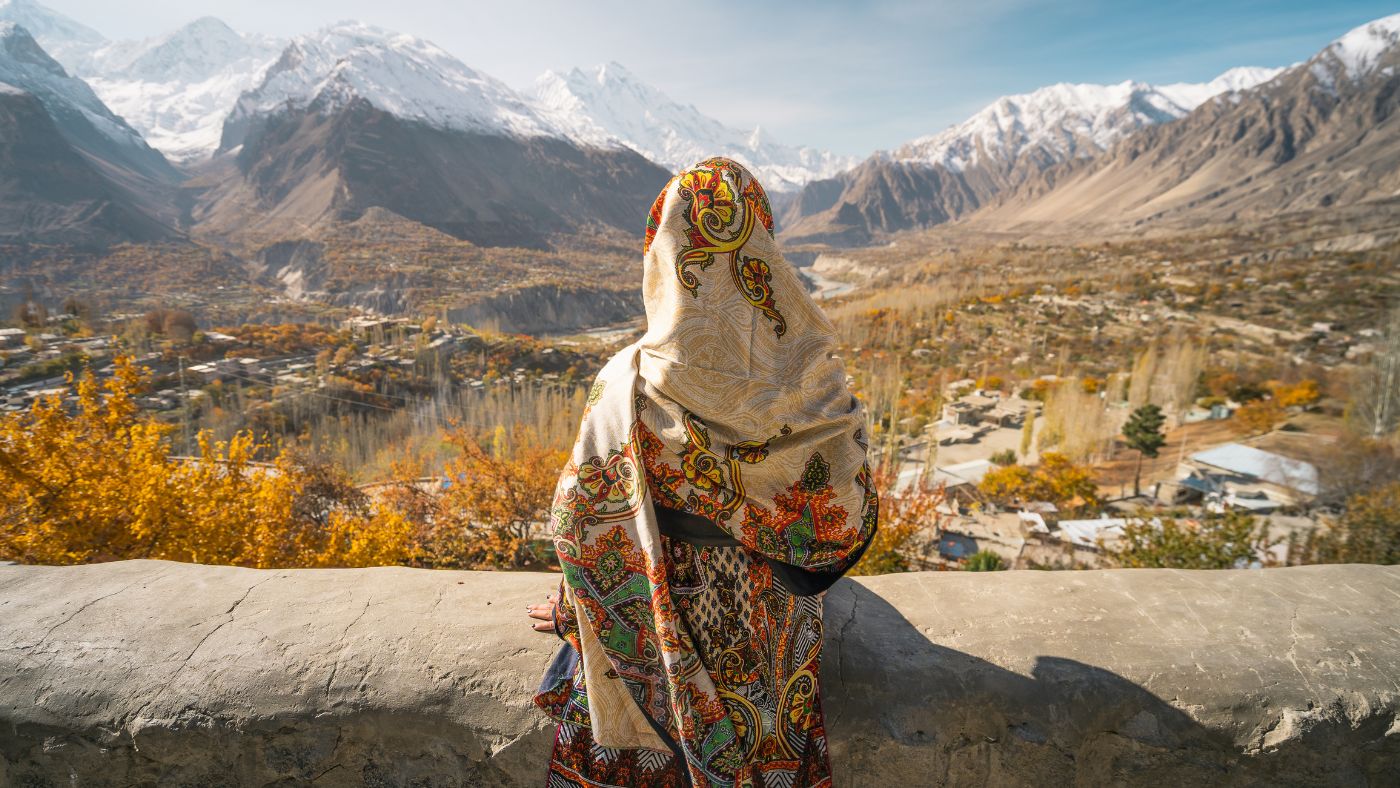Trip of the week: a road trip through Pakistan’s high peaks
The spectacular region of Gilgit-Baltistan is home to snow leopards, ‘crumbling palaces’ and ancient mosques

A free daily email with the biggest news stories of the day – and the best features from TheWeek.com
You are now subscribed
Your newsletter sign-up was successful
Located at the western end of the Himalayas and the northern tip of Pakistan, the region of Gilgit-Baltistan is one of the world’s most impenetrable natural citadels. It also has “an extraordinarily rich cultural landscape”, says Sam Dalrymple in Condé Nast Traveller, having often resisted conquest by neighbouring empires, while absorbing their influence over the millennia along with the other benefits of Silk Road trade. Known to ancient Chinese geographers as the Tibet of the Apricots, it is a spectacular land of snow leopards and brown bears, of “crumbling palaces” and ancient mosques. It has often been closed to outsiders in recent decades owing to the conflict over Kashmir – into which it had been loosely integrated in the 19th century – but it is now open to visitors once more.
Many locals claim that the liberal Muslim society of this region inspired the lost city of Shangri-La in James Hilton’s popular 1933 novel Lost Horizon. The district of Hunza, for instance, is the most literate in Pakistan, with a relatively high level of women’s empowerment. Indeed, an all-female team of carpenters and designers helped restore the Serena Altit Fort Residence, a 1,000-year-old building that is one of three beautiful palace hotels that belong to the Serena group in Gilgit-Baltistan. It overlooks the medieval walled city of Karimabad, Hunza’s capital, in a bucolic valley “where the crisp air is scented with jasmine blossom”, and most new houses are still built in the traditional, timber-framed style.
Driving southwards past the city of Gilgit, you descend into the Indus Gorge, and the verdant valleys give way to an “arid moonscape”. To the east lies Baltistan, a rugged region where an archaic dialect of Tibetan is spoken and yak meat is widely served. It is here that Serena’s other two palace hotels are to be found, in Khaplu and Shigar, not far from K2, the world’s second-highest peak.
The Week
Escape your echo chamber. Get the facts behind the news, plus analysis from multiple perspectives.

Sign up for The Week's Free Newsletters
From our morning news briefing to a weekly Good News Newsletter, get the best of The Week delivered directly to your inbox.
From our morning news briefing to a weekly Good News Newsletter, get the best of The Week delivered directly to your inbox.
Wild Frontiers offers private trips from £2,895pp; wildfrontierstravel.com
Sign up for the Travel newsletter for destination inspiration and the latest news and trends
A free daily email with the biggest news stories of the day – and the best features from TheWeek.com
-
 Local elections 2026: where are they and who is expected to win?
Local elections 2026: where are they and who is expected to win?The Explainer Labour is braced for heavy losses and U-turn on postponing some council elections hasn’t helped the party’s prospects
-
 6 of the world’s most accessible destinations
6 of the world’s most accessible destinationsThe Week Recommends Experience all of Berlin, Singapore and Sydney
-
 How the FCC’s ‘equal time’ rule works
How the FCC’s ‘equal time’ rule worksIn the Spotlight The law is at the heart of the Colbert-CBS conflict
-
 Bad Bunny’s Super Bowl: A win for unity
Bad Bunny’s Super Bowl: A win for unityFeature The global superstar's halftime show was a celebration for everyone to enjoy
-
 Book reviews: ‘Bonfire of the Murdochs’ and ‘The Typewriter and the Guillotine’
Book reviews: ‘Bonfire of the Murdochs’ and ‘The Typewriter and the Guillotine’Feature New insights into the Murdoch family’s turmoil and a renowned journalist’s time in pre-World War II Paris
-
 6 exquisite homes with vast acreage
6 exquisite homes with vast acreageFeature Featuring an off-the-grid contemporary home in New Mexico and lakefront farmhouse in Massachusetts
-
 Film reviews: ‘Wuthering Heights,’ ‘Good Luck, Have Fun, Don’t Die,’ and ‘Sirat’
Film reviews: ‘Wuthering Heights,’ ‘Good Luck, Have Fun, Don’t Die,’ and ‘Sirat’Feature An inconvenient love torments a would-be couple, a gonzo time traveler seeks to save humanity from AI, and a father’s desperate search goes deeply sideways
-
 A thrilling foodie city in northern Japan
A thrilling foodie city in northern JapanThe Week Recommends The food scene here is ‘unspoilt’ and ‘fun’
-
 Tourangelle-style pork with prunes recipe
Tourangelle-style pork with prunes recipeThe Week Recommends This traditional, rustic dish is a French classic
-
 Samurai: a ‘blockbuster’ display of Japan’s legendary warriors
Samurai: a ‘blockbuster’ display of Japan’s legendary warriorsThe Week Recommends British Museum show offers a ‘scintillating journey’ through ‘a world of gore, power and artistic beauty’
-
 BMW iX3: a ‘revolution’ for the German car brand
BMW iX3: a ‘revolution’ for the German car brandThe Week Recommends The electric SUV promises a ‘great balance between ride comfort and driving fun’